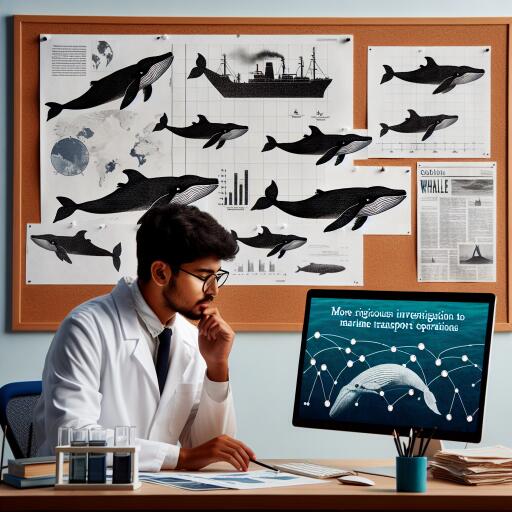
Scots University Advocates for Enhanced Research on Shipping Effects on Whales in the Arctic
In a call to arms for the scientific community, Heriot-Watt University in Edinburgh has voiced concerns over the lack of comprehensive research regarding the impact of increasing shipping traffic in the Arctic on whale populations. As climate change continues to reduce sea ice thickness and extent, the once secluded Arctic waters are seeing a notable rise in maritime activities, potentially putting indigenous marine species at risk.
With the Arctic becoming more navigable due to ongoing climate alteration, species such as the beluga, narwhal, and bowhead whales face new challenges. These species, some with subpopulations numbering less than 250 individuals, have historically lived in environments with minimal exposure to shipping. The introduction of regular vessel traffic poses unknown risks, including heightened noise levels and the threat of ship strikes.
Experts from the School of Energy, Geoscience, Infrastructure and Society at Heriot-Watt University have highlighted the drastic need for focused studies on how this increased maritime presence affects these sensitive marine mammals. Their research underscores a concerning gap in our understanding, having identified only a limited number of studies addressing the direct impacts of shipping on Arctic marine mammal communities.
Concerns also extend to migratory species such as the orca and humpback whale, which seasonally inhabit Arctic waters, and might therefore also be affected by these changing conditions. The lack of definitive data on the subject presents a clear call to action for researchers and policymakers alike to prioritize and expand inquiries into these potentially harmful interactions.
Highlighting the urgency of this situation, the research team emphasizes the historical pattern of human industrial expansion often neglecting environmental impacts until detrimental effects have become irrevocable. The call for proactive research and mitigation strategies aims to prevent similar outcomes in the Arctic, advocating for a future where marine life and human interests can coexist sustainably in these fragile ecosystems.
As the Arctic continues to face transformative pressures from climate change and human activities, the need for a concerted effort to understand and mitigate impact on indigenous whale species has never been more critical. By focusing research efforts now, there is hope to preserve the unique biodiversity of the Arctic marine environment for generations to come.





Leave a Reply